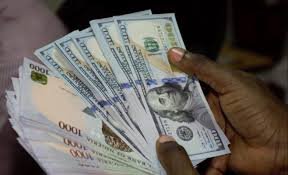Nigeria has recorded a remarkable leap in the Absa Africa Financial Markets Index 2025, climbing to fourth place in foreign exchange (FX) accessibility across the continent. The latest ranking places Africa’s largest economy just behind South Africa, Madagascar, and Mauritius, a feat credited to sweeping economic reforms and renewed investor confidence. For a nation long constrained by currency volatility, this marks a decisive turn toward transparency and market-driven growth.
Key Highlights:
Nigeria jumps 15 spots in FX accessibility, scoring 73 points, a 22-point surge from 2024.
Central Bank reforms under Governor Olayemi Cardoso credited for stabilizing the naira and clearing a $7 billion FX backlog.
Improved investor confidence fuels renewed interest in the Nigerian Exchange (NGX).
Stronger foreign reserves and Eurobond demand strengthen market credibility.
Read also:
NESG pleads with CBN to harmonise multiple exchange rates
MOWAA Controversy: I was not informed of foreign delegation, EU Ambassadors’ visit to Edo – Okpebholo
Germany backs Moldova’s path to strengthen its democracy, says Foreign Minister
Ranking signals renewed potential for foreign direct investment across multiple sectors.
The Absa Africa Financial Markets Index, developed by the Official Monetary and Financial Institutions Forum (OMFIF) in partnership with Absa, evaluates 29 economies based on market depth, transparency, and openness. Nigeria’s jump in the FX accessibility pillar, which measures liquidity, reserves adequacy, and capital control efficiency, is the most significant improvement recorded in this year’s report.
The reforms introduced by the Central Bank of Nigeria (CBN) have been instrumental in this turnaround. By unifying multiple FX windows into the Investors and Exporters (I&E) window and settling longstanding FX backlogs, the apex bank restored investor trust and eased repatriation challenges. These steps have reduced reliance on parallel markets and boosted liquidity within the official channels.
As a result, the naira has regained relative stability, trading around ₦1,421 per dollar in early November, its strongest level this year. Coupled with rising reserves and increased inflows from Eurobond sales and diaspora remittances, Nigeria’s FX ecosystem now operates with greater transparency and efficiency.
Economic analysts describe this as a strategic shift toward a predictable and investor-friendly market. “Nigeria’s FX framework now reflects a more transparent and functional structure, which has encouraged portfolio inflows,” said a BusinessDay analysis cited in the report.
The benefits of this transformation extend beyond the financial markets. Easier FX access is expected to attract renewed foreign direct investment in key sectors such as technology, agriculture, and renewable energy, areas previously stifled by currency risks and repatriation bottlenecks.
However, experts caution that sustaining the momentum will require consistent fiscal discipline, stronger infrastructure, and continued diversification away from oil dependency. Despite its new ranking, Nigeria still faces inflation pressures above 30 percent and structural weaknesses that could hinder further progress.
On a continental scale, Nigeria’s rise has reshaped Africa’s financial narrative. Smaller economies like Mauritius and Madagascar may have maintained their edge, but Nigeria’s resurgence signals a broader movement toward reform-led resilience in sub-Saharan markets.
As President Bola Tinubu’s administration sets its sights on achieving 7% GDP growth in 2026, Nigeria’s FX triumph could serve as a springboard for deeper financial inclusion and cross-border integration.
With barriers gradually falling and transparency improving, the nation stands on the threshold of reclaiming its position as Africa’s financial gateway, a symbol of what market reform and policy discipline can achieve in a single fiscal cycle.






